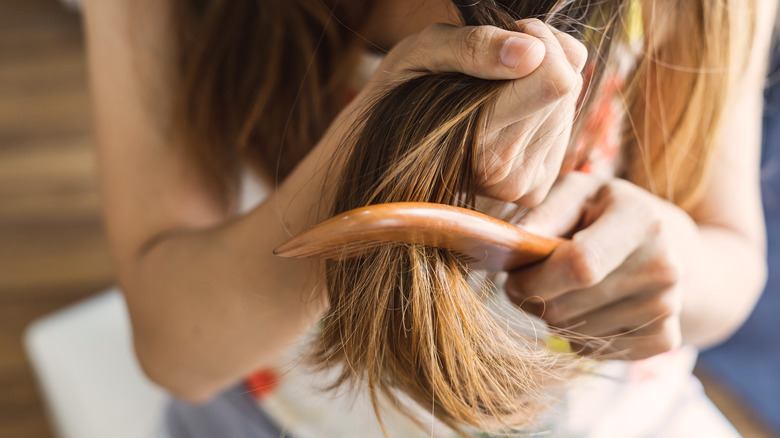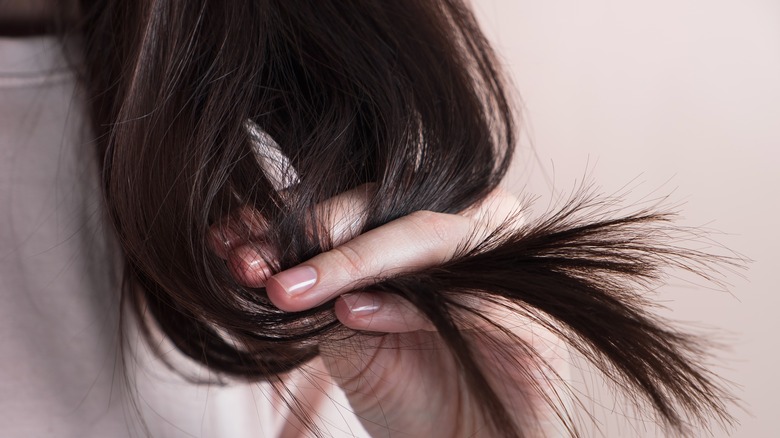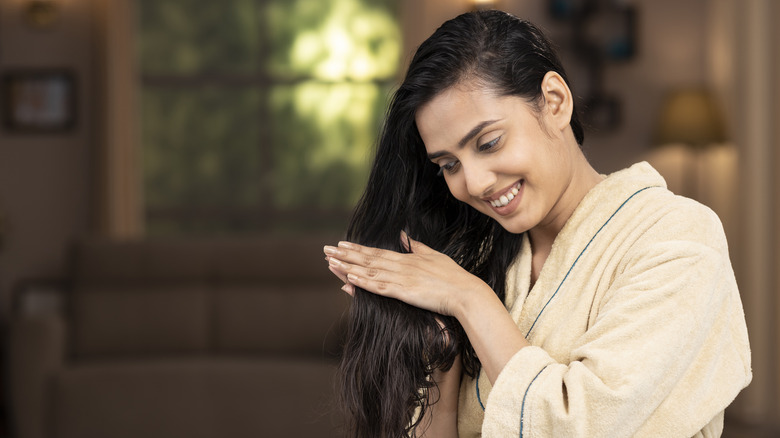Dry Vs Dull Hair: What's The Difference?
You've started to notice that your hair just isn't what it used to be. Rather than your locks being shiny and happy, they tangle easily, always look lifeless, and feel rather heavy on your scalp. Brushing your hair has become torturous as your precious tresses break off onto the bristles. Your hair is clearly not its usual self, but is it dull or dry?
The difference between dull and dry hair comes down to the cuticle itself. While dry hair desperately craves those hydrating H2O molecules, dull hair is screaming for help due to damage to the cuticle itself. Therefore, the causes and treatment for each can be slightly different depending on the severity of the damage.
Settle in because it's time to bring back the shine by getting all the facts about dry vs. dull hair and what causes each one. We'll also delve into how to treat both issues to get healthier, glossier hair, so you can avoid the problem in the future.
Dull hair is damaged at the cuticle
When it comes to the dry vs. dull hair debate, the latter is actually the worse of the two issues. Dull hair is caused by uneven light reflection on the hair shaft due to damage or nutrition issues. When your hair is dull, not only will it lack any shine or luster, but it's going to be heavy, coarse, and frizzy to boot. According to celebrity hairstylist and founder of Phenix Salon Suites, Gina Rivera, "The hair's color can also look brassy for blondes and those with highlights, or mousey and flat for those with darker hair tones" (via Prose).
Typically, this is caused by damage to the cuticle from sources such as diet, styling, harsh chemicals, using the wrong hair care products, and even stress. So, your morning straightening routine or overprocessing your hair with bleach has caused the follicles to separate and break apart, allowing oils and nastiness to build up in your hair and on your scalp. Thankfully, there is hope.
Dull hair is dry, lifeless, and desperate for a bit of TLC. Therefore, you need to pull out the big guns to treat it. In addition to letting your hair dry naturally, consider taking vitamins to nourish your hair from the inside out. It's also pivotal to use a clarifying shampoo to remove build-up and slather your hair in oils. Rivera also warns, "Avoid anything that is harsh on the scalp."
Dry hair needs a little extra moisture
Dull and dry hair look pretty similar under the light of your vanity. They both lack shine and feel brittle. However, while dull hair is caused by damage to the cuticle, dry hair needs some added hydration to restore its former glory. The cause of dry hair can be anything from your environment to water temperature, according to hairstylist and Kérastase brand ambassador Matthew Morris. "Excessively hot water is a big culprit," he revealed. "People are literally boiling the moisture out of their hair."
According to Morris, "When conditioning the hair, the hair should be warm, and the conditioner should be applied and rinsed with cooler water. This will close the cuticle down and trap conditioning agents and moisture with it" (via Hair.com). Certain medical conditions, like thyroid issues, can also leave your hair desperate for a long drink of water. Fortunately, the treatment for dry hair is pretty similar to dull hair, like using special conditioners and oils to moisturize it further and avoiding washing your hair too often.
You should also consider only brushing your hair when it's dry to mitigate breakage. It can be hard to tell if your hair is dull or damaged by just looking at it in the mirror. Thankfully, the treatment for both is similar, so you can kill two birds with one stone. Just remember that dry hair that's not treated can quickly become dull hair as the cuticle gets increasingly damaged, so always make sure to condition properly and treat your hair with care.


